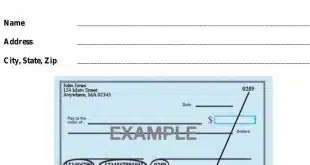About 14% of financial institutions that issue debit cards charge fees for PIN debit transactions, and in the past year 15% of debit card holders were subject to the fees, with somewhere between 10% and 15% of customers actually paying them. Fewer than 1% of banks, meanwhile, assess fees to consumers when they use signature-debit cards. When charged, PIN debit fees range from 10 cents to $2 per transaction, with a median levy of 75 cents. And, while nearly all financial institutions adhere to the fee-disclosure requirements of Regulation E, many consumers and merchants find banks' disclosures of debit fees confusing or misleading. These are among the major conclusions of a new study of debit card fees and fee disclosure released late last week by the Federal Reserve. The report, which the Fed prepared at the behest of Congress, represents the first effort to measure the fees charged by banks for both PIN-based and signature-based debit cards by surveying nationally representative samples of financial institutions and consumers. It summarizes the findings of these surveys?which embraced 839 banks and 1,500 consumers?and discusses several methods that could be adopted to improve fee disclosure. It also reviews the interchange pricing mechanism that drives the costs to merchants and the incentives to issuers stemming from the two competing debit products. Merchants and others have argued issuers charge PIN debit fees is to encourage consumers to switch to signature-debit cards, which bring more interchange income to banks but are more costly for merchants to accept. The Fed report seems to confirm this view, stating that “encouraging customers to use signature debit appears to be the primary motivation behind most PIN fees.” Still, since no comparable data exists from previous years, the Fed says it can't say whether PIN debit fees are “becoming more or less prevalent over time.” The Fed report acknowledges the growing prominence of debit usage?especially PIN debit usage–at merchant locations, and points out how debit transactions now have a far greater impact on the economy than was the case only a few years ago. It estimates that on a typical $40 debit purchase, merchants pay 57 cents in interchange for a signature-debit transaction and 34 cents for a PIN debit payment. On a credit card transaction of the same size, merchants pay 72 cents. The consequence of a consumer shift to signature debit, the report points out, could be a higher-cost payment system and the chance that merchants would pass on more payment-system costs to consumers. Clearer disclosure of PIN fees could trigger such a shift, the report points out. “Enhanced disclosure…would likely reinforce these incentives [such as rewards programs on signature-debit cards] and cause consumers to switch from PIN debit to some other form of payment, at least in the short term,” says the report. Current regulation requires banks to disclose debit fees on initial, periodic, and change-of-terms statements. Yet current disclosures of PIN debit fees by banks, while meeting technical requirements and regarded as adequate by banks surveyed in the report, aren't satisfactory to many consumers and merchants. “A large proportion of consumers advocated clearer disclosure of fees than is currently required by Reg E,” says the Fed, which in addition to the two primary surveys presented in the report also took comments from merchants, banks, consumers, networks, and processors. The report says that of households in the survey who said their banks charged a debit fee, 23% were surprised at being charged, suggesting they became aware of it only when they received their statements. Some consumers, says the Fed, mistakenly thought the merchant where they did the transaction had charged the fee. The report reviews several alternative disclosure mechanisms, the most radical?and costly?of which is a real-time, network-based system that would display fees at the terminal at the time of authorization, giving the consumer the chance to accept the transaction or choose another payment method. Such a system would require an overhaul of issuers' authorization databases, a vast increase in network capacity, and a wholesale changeout of terminals, resulting in a cost the Fed estimates at $5 billion to $10 billion. More practical, says the report, would be a requirement that banks itemize PIN fees on their periodic statements, spelling out who charged the fee and where the transaction took place. Most banks do this already. In its consumer survey, the Fed found that of households that said their banks charge debit fees, 65% said their banks itemized the fees.
Check Also
After Some Fixes, PayPal Says It Has Surpassed $30 Billion in Loan Originations
Trumpeting its financing services for small and mid-size businesses, payments giant PayPal Holdings Inc. disclosed …






